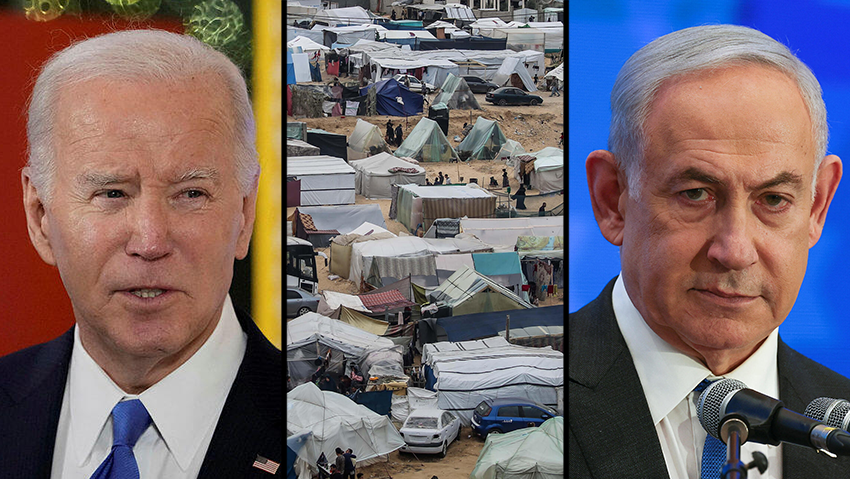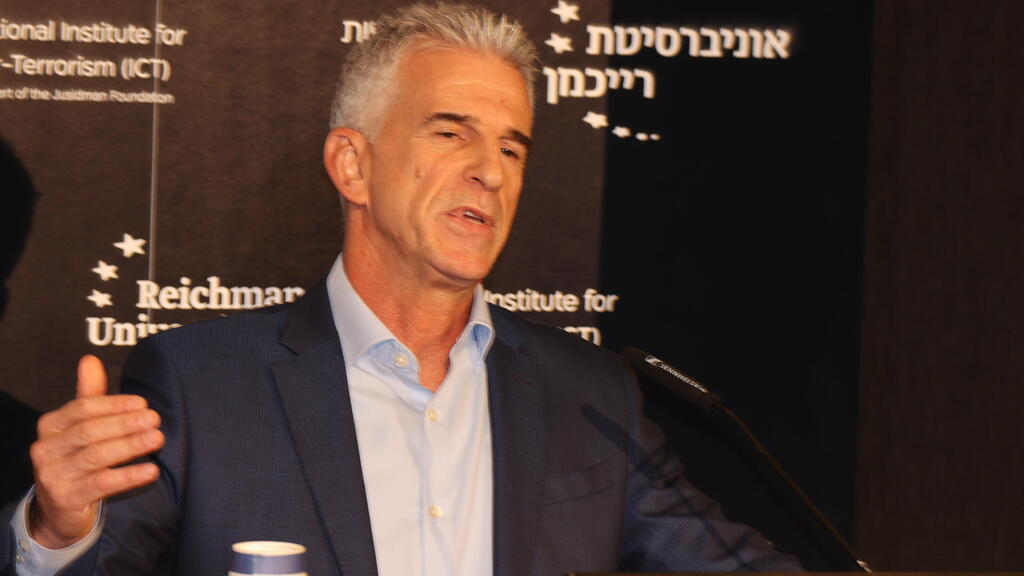The Biden administration is increasing efforts to bring about a cease-fire in Gaza ahead of the Muslim holy month of Ramadan, due to begin March 10. American officials believe the release of the hostages, who have been held in inhumane conditions for the last 138 days, would result in a pause in the fighting and perhaps end the war, according to a CNN report.
Read more:
One source told the network that the next two weeks are critical. Washington is concerned that an Israeli military assault during the holy month would only increase regional tensions. The officials said Israel was explicitly warned against attacking Rafah where 1.5 million refugees currently are concentrated and that ensuring their safety is an impossible task.
2 View gallery


Joe Biden, refugees in Rafah, Benjamin Netanyahu
(Photo: Ronen Zvulun / Reuters, Ahmad Hasaballah / Getty Images )
Meanwhile Israeli officials said representatives would most probably join the Paris summit on Saturday, to advance negotiations on a hostage release agreement.
Officials involved in the discussions said it is unclear whether Prime Minister Benjamin Netanyahu will prefer a pause in the fighting over a military operation in Rafah that would advance the objective of destroying Hamas. "It does not seem like Netanyahu is willing to make any deals at the moment," a senior Israeli diplomat said.
He added that, in the meetings in Cairo last week, the Israeli delegation headed by Mossad chief David Barnea was only prepared to discuss humanitarian aspects of a deal and that no technical team was sent with Barnea, indicating there was no real intention of negotiating a new deal. Israel added its demand for proof that the medications for the hostages had been delivered. Their delivery was confirmed on Wednesday.
Reliable sources told Ynet on Wednesday evening that the Hamas leadership based in Qatar had contact with the terror leaders in Gaza after a break in communications that caused delays in talks with the mediators in Egypt and in Qatar on a future agreement, because Hamas leader in Gaza Yahya Sinwar could not be reached.
The message from Gaza is that negotiations should concentrate on a partial, "humanitarian," deal and not a comprehensive solution to the hostage crisis and the war. Hamas leaders in the Strip also said that the terror group was willing to consider lowering the number of Palestinian prisoners it is demanding in an exchange for hostages, reducing its demands for international assurances to rebuild Gaza, and a change in the demand for a complete withdrawal of Israeli forces from the Strip and an end to the fighting.
Earlier, War Cabinet member Benny Gantz said there were initial signs of progress toward a new agreement. "I would like to assure the families of the hostages, who show such strength of spirit, that we are leaving no stone unturned to fulfil our mission, that the government is responsible for. There are attempts to advance a new outline, and initial signs that progress is possible," he said.


